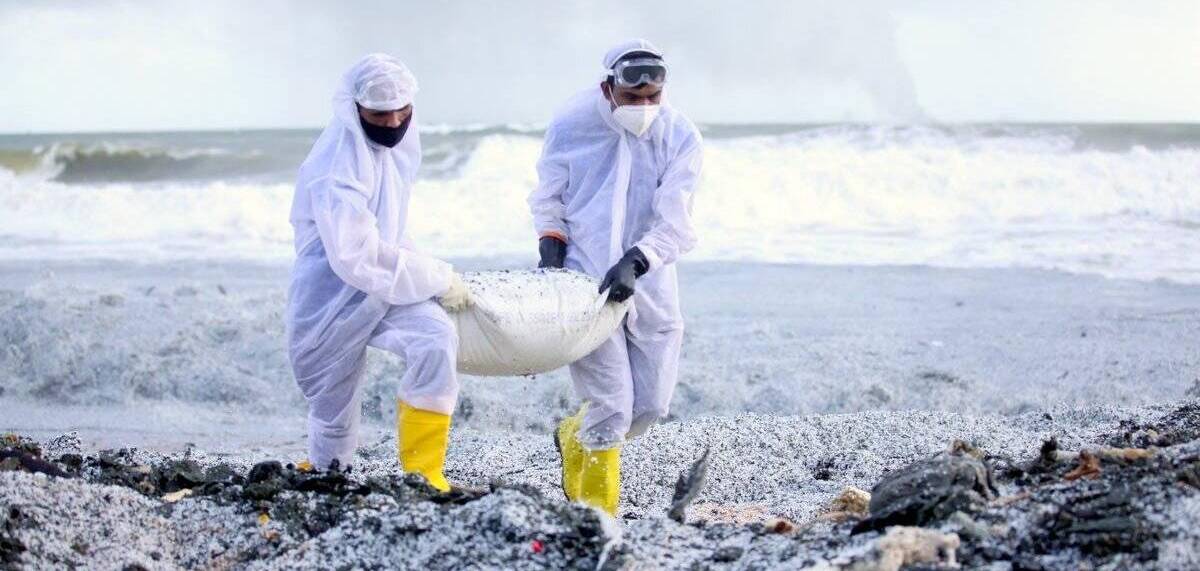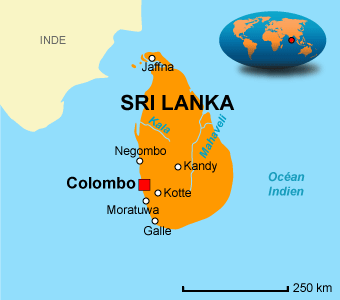
At this stage of the investigation, it is still difficult to determine with exactitude the causes of the ecological catastrophe which is currently playing out off Colombo, the capital of Sri Lanka.
For 12 days now, a container ship 186 meters long has been on fire. The boat which carried 25 tons of nitric acid, caustic soda, lubricants and ethanol in its bunkers ran aground causing probably the most serious pollution in Sri Lanka's history. The damage to the environment is enormous. The pollution affects an area of about 80 kilometers along the coast around Colombo, an area of tourist beaches, shallow-water fishing areas, and fragile ecosystems of mangroves and lagoons. In addition to the devastation at sea, the accident soiled kilometers of Sri Lankan beaches. In fact, millions of plastic granules intended for the packaging industry have escaped from around thirty containers and are spilled on the coast.
All of them work tirelessly to clean up. "We do not see the end of it. Yesterday, we removed all the plastic from this beach. With what the waves deposited during the night, we just have to start over" , says Manjula Dulanjala, l one of the sailors responsible for cleaning. In some places, the layer of plastic and debris reaches two feet high.
According to the first statements of the Sri Lankan authorities, it would seem that negligence was at the origin of the fire which broke out last May 20 aboard the X-Press Pearl. The crew had noticed a nitric acid leak since May 11. On the basis of this first finding, legal action will be launched by Sri Lanka against the shipowner, X-Press Feeders. "We will bring those responsible to justice," Marine Environment Protection Authority president Dharshani Lahandapura told reporters.
The investigation promises, however, to be long and meticulous. "We also sent samples of polluted seawater and burnt debris from the boat for analysis ," police spokesman Ajith Rohana said. And even if the fire seems under control and there is apparently no more risk of the boat breaking and releasing at sea its fuel as well as its cargo of 278 tonnes of bunker fuel and 50 tonnes of marine diesel , the consequences for the area are already dramatic.
The tourism and fishing sectors will be severely affected and will have to face a long crisis. According to Dr. Arulananthan, a scientist at Nara, a local aquatic resources research institute: " This pollutant is not poisonous immediately, but the fish that swallow it cannot digest it, their digestive system can become blocked, and they die of it ".
Authorities say most of the cargo appears to have been destroyed by the flames. True or false, the Indian Ocean did not need this kind of disaster. This is not the first time that this region of the world has had to deal with monster pollution of this kind; in addition to the plastic pollution we have talked about often. These waters are sea routes heavily used by commercial vessels departing from India and other Asian countries. Let us hope that the prosecutions will succeed and that the sanctions will be heavy in order to force many shipowners to more scruples and to come to the aid of a country which is going to need it.

Geo Point
Sri Lanka
Capital: Sri Jayawardenapura Kotte (administrative capital), Colombo (economic and political capital)
Population: 21.8 million inhabitants
Area: 65,610 km²
Currency: Sri Lankan rupee
Posted on 2021-06-01 10:34








Comments